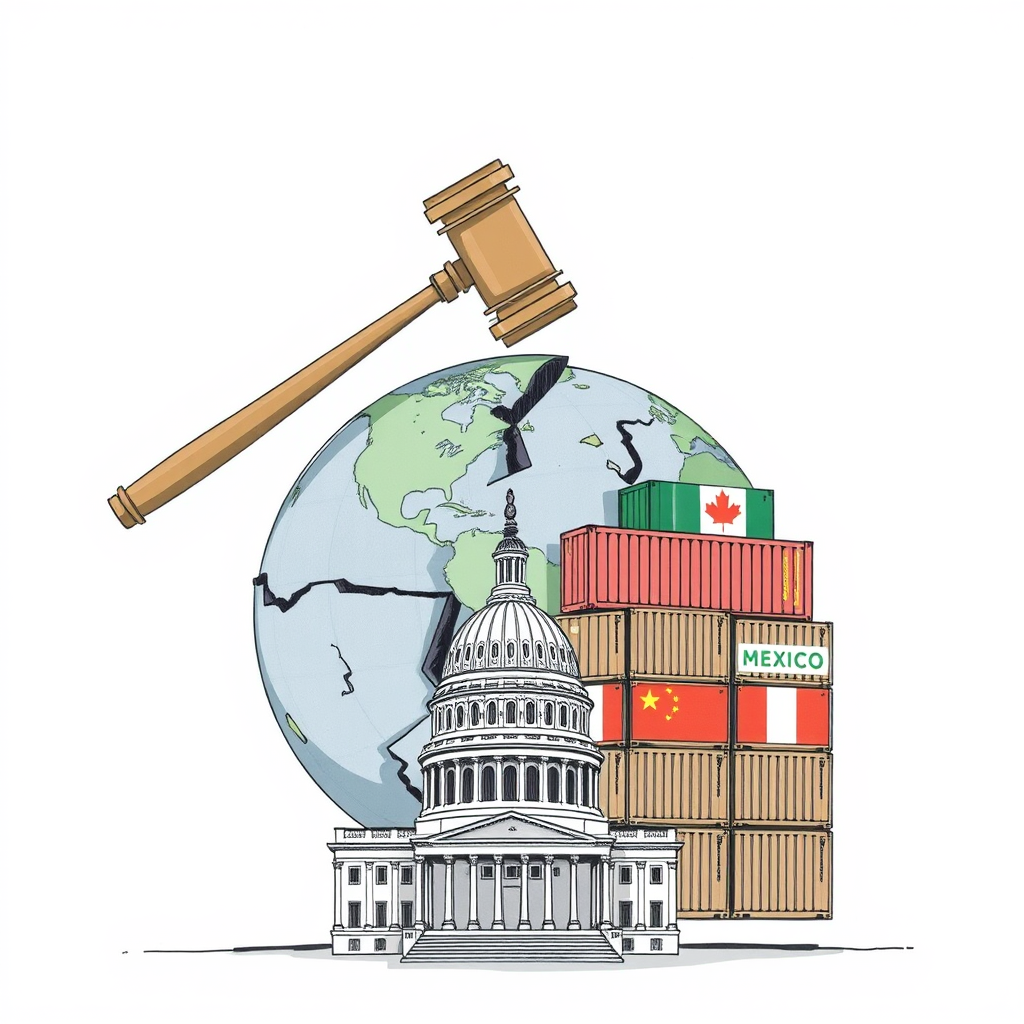Trump's Tariffs Deemed Unlawful in New Lawsuit

A coalition of five American businesses has launched a legal challenge against tariffs enacted during the Trump administration, alleging the former president acted unlawfully in imposing them and asserting the tariffs pose a significant threat to the global economy. The lawsuit, filed with the U.S. Court of International Trade, names VOS Selections, Inc., Plastic Services and Products, Genova Pipe, Microkits, FishUSA, and Terry Precision Cycling as plaintiffs.
Represented by the Liberty Justice Center and law professor Ilya Somin, the businesses argue that Trump exceeded his constitutional authority by unilaterally imposing tariffs without congressional approval or adherence to established legal procedures. The complaint specifically targets the use of the International Emergency Economic Powers Act (IEEPA) to justify tariffs on goods from Mexico, Canada, China, and under the so-called “Liberation Day tariffs.”
The legal team contends that IEEPA requires a declared national emergency stemming from an “unusual and extraordinary threat” originating outside the U.S. – a condition they argue was not met by the trade deficits cited by the Trump administration as justification. They further point out that tariffs were imposed on countries without trade deficits with the U.S., undermining the administration’s stated rationale.
The lawsuit doesn’t simply challenge the reasoning behind the tariffs, but the very authority used to enact them. The Liberty Justice Center asserts that IEEPA doesn’t authorize tariffs at all, and even if it did, granting the president such broad power would constitute an unconstitutional delegation of Congress’s power to regulate trade.
This case raises crucial questions about the balance of power between the executive and legislative branches, and the limits of presidential authority in matters of economic policy. While the use of tariffs as a negotiating tactic or to protect domestic industries isn’t new, this lawsuit highlights the potential for abuse when such measures are implemented without clear legal justification or congressional oversight. The outcome could have significant implications for future trade policy and the stability of the global economy. It’s a compelling argument that the previous administration overstepped its bounds, and the courts should carefully consider the implications of allowing such expansive executive power.